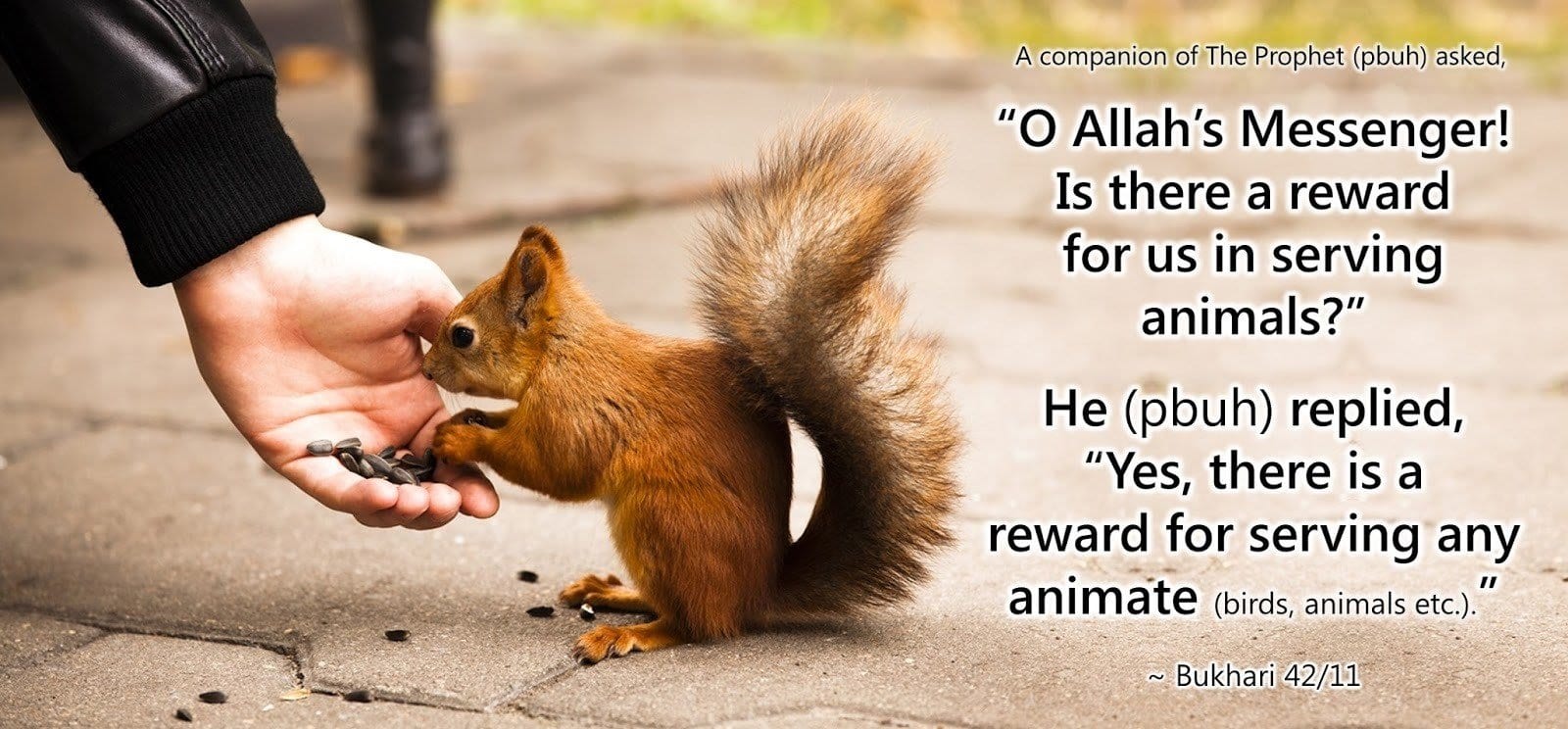In the realm of ethics and morality, few topics elicit as profound a response as the treatment of animals. As sentient beings, animals occupy a significant place in the intricate tapestry of life, and how we choose to treat them reflects our values. For many, the question of whether animal cruelty is a sin in Islam surfaces. This inquiry leads us to explore the depths of the Quranic teachings on kindness to animals, unveiling a rich legacy steeped in compassion and responsibility.
To understand the Islamic perspective, we must first immerse ourselves in the verses of the Quran and the sayings of the Prophet Muhammad (peace be upon him). These texts lay a foundational ethos, compelling believers to engage with the world’s fauna with reverence and benevolence. Surah Al-An’am reminds us, “And [He is] the one who has made for you the stars that you may be guided by them through the darkness of the land and sea. We have certainly made clear the signs for a people who know” (6:97). Here, the Quran not only acknowledges animals as part of God’s creation but emphasizes the interconnectedness of all living beings, a crucial element of Islamic teaching.
In the prophetic traditions, or Hadith, we find explicit admonitions against cruelty. One well-known narration details a woman who was punished in Hell for confining a cat without food or water. This narrative underscores the severity with which Islam views the act of inflicting suffering upon any creature. The Prophet’s profound compassion toward animals serves as a guiding star, illuminating the path for believers. He taught that a simple act of kindness, such as providing water to a thirsty dog, is a means by which one may earn Allah’s pleasure and mercy.
Furthermore, Islamic jurisprudence rigorously stipulates the ethical treatment of animals. Scholars have established a framework that mandates humane practices in agriculture, veterinary care, and even in the context of halal slaughtering methods. The criteria set forth aim to minimize suffering, affirming the principle that while animals are to serve humanity, their treatment is to be governed by compassion rather than indifference.
As we navigate this discourse, it becomes essential to consider the implications of our actions towards animals. The metaphor of stewardship emerges vividly within Islamic thought. Humans are often termed as “khalifah” or stewards of the earth. This implies a sacred trust bestowed by God, wherein caretaking extends to all living beings. Just as a shepherd tends to their flock, fulfilling their needs while ensuring their safety, so too must we assume responsibility for the creatures that share our environment. It is a divine mandate to nurture rather than to harm.
Moreover, the concept of accountability transcends the traditional understanding of sin. In Islam, every action has a corresponding consequence, whether in this world or the hereafter. The idea that neglecting the welfare of animals could lead to divine retribution catalyzes a deep introspection. To ignore the cries of the voiceless is to sever one’s connection to spirituality and compassion, effectively erasing the bond with our Creator. The Quran equates the treatment of fellow creatures with the treatment of oneself: “And do good; indeed, Allah loves the doers of good” (2:195).
Yet, the question remains: what are the manifestations of this kindness in practical terms? Numerous initiatives have blossomed within the Muslim community, showcasing the vibrant synergy between faith and activism. Animal sanctuaries, rescue operations, and educational programs advocating for humane treatment have emerged, reflecting a growing recognition of the need for compassion. Engaging in acts of kindness—whether through direct intervention like rescuing an abandoned animal or supporting organizations that advocate for animal welfare—becomes not just a recommendation, but a spiritual endeavor.
Furthermore, this dialogue should also encompass a broader examination of societal attitudes towards animals. Many communities still grapple with entrenched beliefs that perpetuate cruelty and neglect. As stewards, Muslims must champion the cause of awareness and education, disseminating knowledge about proper care, respect, and empathy towards all living beings. The narratives of kindness in Islam, prominently featured in the scriptures, should inspire a movement toward a more compassionate world.
In conclusion, the exploration of animal cruelty within the framework of Islam reveals a rich tapestry woven with threads of compassion, stewardship, and accountability. It implores believers to reflect upon their actions and underscores the moral imperative to treat all creatures with dignity. As we strive to embody these teachings, we must recognize that our relationship with animals is a microcosm of our broader ethical stance toward life itself. The tenets of kindness, responsibility, and reverence towards all God’s creations extend a powerful message—one that promotes harmony, understanding, and ultimately, a more humane existence. Through these teachings, we affirm that animal cruelty is not merely an ethical transgression but a serious sin against the principles that guide human behavior toward the divine and the earthly alike.








